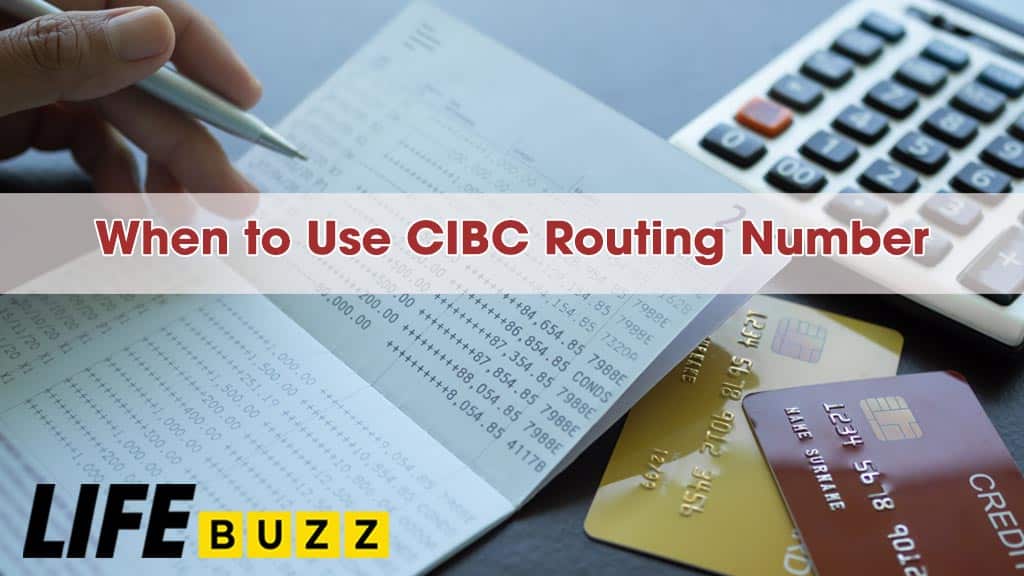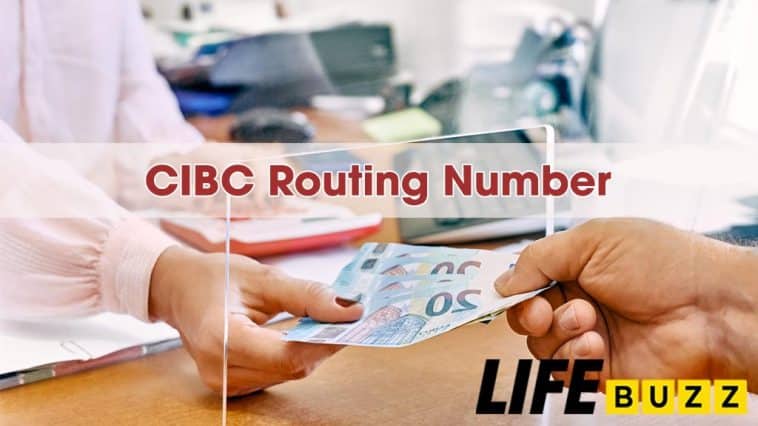As one of the Big Six banks in Canada, CIBC plays a significant role in the country’s financial system, serving over 10 million clients nationwide. Understanding the CIBC routing number is essential for its clients to perform any banking transactions. This article will break down what a CIBC routing number is, its components, and how to find and use it effectively.
What is CIBC Routing Number?
A routing number is a 9-digit code used to identify a specific financial institution and the branch where an account is held. It allows banks to route and process various paper and electronic financial transactions, like cheques, direct deposits, and pre-authorized debits.
A routing number consists of two components, including the institution number and the transit number.
CIBC Institution Number (010)
For all transactions with CIBC, whether digital or paper-based, the institution number is 010. This 3-digit code identifies the bank as a whole.
CIBC Transit Number
The second component is a 5-digit transit number, or branch number, that identifies the specific CIBC branch location where you open the account. Each branch has a unique transit number to direct funds to the correct location.
Some examples of the transit numbers of different CIBC branches in Canada:
- 00062: Commerce Place Banking Centre, 1 King St W, Hamilton, ON L8P 1A4
- 00060: Main & Nanaimo Banking Centre, 295 Main St., Penticton, BC V2A 5B1
- 00080: Whitehorse Banking Centre, 110 Main St, 110 Main St., Whitehorse, YT Y1A 2A8
- 00089: Wetaskiwin Banking Centre, 5213-50th Ave., Wetaskiwin, AB T9A 0S7
Two Formats of CIBC Routing Number: Paper vs. Electronic
The routing number appears in two different formats depending on the type of transaction.
Paper Format (MICR): XXXXX-010
For paper transactions, the routing number is formatted with the transit number first, followed by the institution number. This format is found along the bottom of a physical cheque in a special magnetic ink. and used to process physical cheque payments.
Electronic Format: 0010XXXXX
This 9-digit format is required for all electronic transactions, including direct deposits, wire transfers, and online bill payments. It starts with a leading zero, followed by the 3-digit institution number (010), and then the 5-digit transit number.
So, for a cheque or online payment from a CIBC account held at the Commerce Place Banking Centre, 1 King St W, Hamilton, ON L8P 1A4, the full 9-digit routing number would be:
- Electronic format: 001000062
- Paper format: 00062-010
Useful tips for proper formatting:
- For the transit number, add leading zeros if it is not already 5 digits
- For the account number, add leading zeros if it is not already 7 digits
CIBC may reject transactions if the account and routing numbers do not match their records. Double-check that you have the correct format for your unique needs.
How to Find Your CIBC Routing Number
There are 5 easy ways to find your personal or business CIBC routing number:
Look at the bottom of the cheque
Personal and business cheques issued by CIBC display the routing number along the bottom. From left to right, you will typically see the cheque number, the 5-digit transit number, the 3-digit institution number, and finally your account number.

Use CIBC Online Banking
Sign in to your CIBC online banking account and select the account you want, and the routing number will be displayed. You can also print a void cheque or direct deposit prom here, which contains your banking details.
Check your account statements
Your monthly digital or paper bank statements from CIBC clearly list your full transit number and account number.
Use CIBC Branch Locator
You can look up your transit number using the CIBC Branch Locator. Search for your branch by address or postal code, and the profile will show the transit number. Remember to combine this with the institution number 010 and format it correctly for your needs.
Contact CIBC
Speaking with a CIBC banking representative by phone or visiting a branch are other options to obtain your routing number directly.
Note: The home branch where an account was opened may have a different transit number than the nearest CIBC branch. So always check statements and online banking for the exact transit number associated with each account.
When Do You Need the CIBC Routing Number?

Your CIBC routing number is required for a wide range of financial activities:
- Direct deposits: Providing your employer or other organization with this information enables them to establish payroll. Tax refunds and other government benefits like GST credits also require a routing number to deposit funds into CIBC accounts.
- Pre-authorized debits: Registering the CIBC routing number with merchants allows online bill payments for expenses such as mortgages, utilities, subscriptions, gym memberships, and insurance premiums..
- Wire transfers: When transferring money domestically, you will need to provide the recipient with your CIBC routing number and account number.
- Cheque processing: Cheques list the routing number, which allows banks to process and clear payments through the banking system and networks, such as the Canadian Payment Association.
Providing this important number to your employers, government agencies, and other organizations ensures your payments are properly routed.
International Transfers: Routing Number vs. SWIFT Code
The Canadian routing number is for domestic use only. For international wire transfers to or from your CIBC account, you must use a SWIFT code (also known as a BIC, or Bank Identifier Code). CIBC’s main SWIFT Code is CIBCCATTXXX.
A SWIFT code is an international standard that identifies a specific bank anywhere in the world. While some CIBC branches may have unique SWIFT codes, using the primary code CIBCCATTXXX will ensure the payment reaches CIBC’s central processing for correct routing to your account.
Key Takeaways
Understanding routing numbers is a crucial aspect of managing your finances and making both digital and paper-based payments from CIBC accounts. Key points to remember:
- CIBC’s Institution Number is always 010. A routing number combines the 5-digit transit (branch) number and the 3-digit institution number.
- There are two formats: Paper (MICR) XXXXX-010 and Electronic (EFT) 0010XXXXX.
- You can find your full routing and account number on a void cheque, in CIBC Online Banking, or on an account statement.
- For international transfers, you need a SWIFT/BIC code, not the domestic routing number.
Our Routing Number Guides for Canadian Banks
Need help finding and using the routing numbers for different banks in Canada? Browse our handy references:
- How to Find Your National Bank Routing Number
- How to Find Your TD Routing Number
- How to Find Your RBC Routing Number
- How to Find Your Scotiabank Routing Number
- Finding Your Simplii Financial Routing Number
At Lifebuzz, we understand the importance of making the right financial moves. Contact us today to assess your situation and get personalized advice.
Frequently Asked Questions
Why does my CIBC account have two different routing numbers?
Some CIBC accounts may display a different electronic routing number (institution number first) than the paper routing number printed on their cheques. This is normal for linked accounts. Use the appropriate format for the transaction type.
Do I need to provide a routing number for CIBC e-transfers?
No, CIBC e-transfers between CIBC accounts only require the recipient's email address or mobile number. Routing numbers are not needed.
Can I use the same CIBC routing number for different accounts?
No, while the institution number is always 010 for CIBC, each account will have its own unique 5-digit transit number and 7-12-digit account number, so the full routing number differs.
What happens if I provide the wrong CIBC routing number?
Providing an incorrect routing number could result in transactions being rejected or processed on the wrong account. Always verify your details.
Can I change the routing number of my CIBC account?
No, the routing number is tied to the original branch your account was opened at. You would need to open a new account at a different CIBC branch to obtain a new routing number.
Is there a fee to wire transfer using the CIBC routing number?
Yes, CIBC charges a fee ranging from $30-80 for outbound wire transfers depending on the dollar amount. Incoming wires have a $15 fee.
How do I register my CIBC routing number for CRA direct deposit?
You can provide the CRA with your routing number online through MyAccount, over the phone, or by filling out Form RC151. Use the electronic format.
Is my CIBC routing number the same as the SWIFT code?
No, they are different. The SWIFT code uniquely identifies CIBC internationally, while the routing number identifies your specific CIBC account domestically.
Where can I find my CIBC account number without cheques?
You can get your 7-12 digit account number online through CIBC banking, on statements, or by visiting a CIBC branch with a valid ID. A cheque is not required.
Can I change the branch associated with my CIBC routing number?
No, you cannot change the transit routing number without opening a new account. You would need to open an account at your preferred CIBC branch to obtain their transit and routing number instead.
Article Sources
For insight into our steadfast commitment to delivering accurate, transparent, and unbiased reporting, please examine the Editorial Policy on Lifebuzz.ca. It’s this dedication that has earned us the distinction of being the leading trusted authority on life insurance news in Canada.


